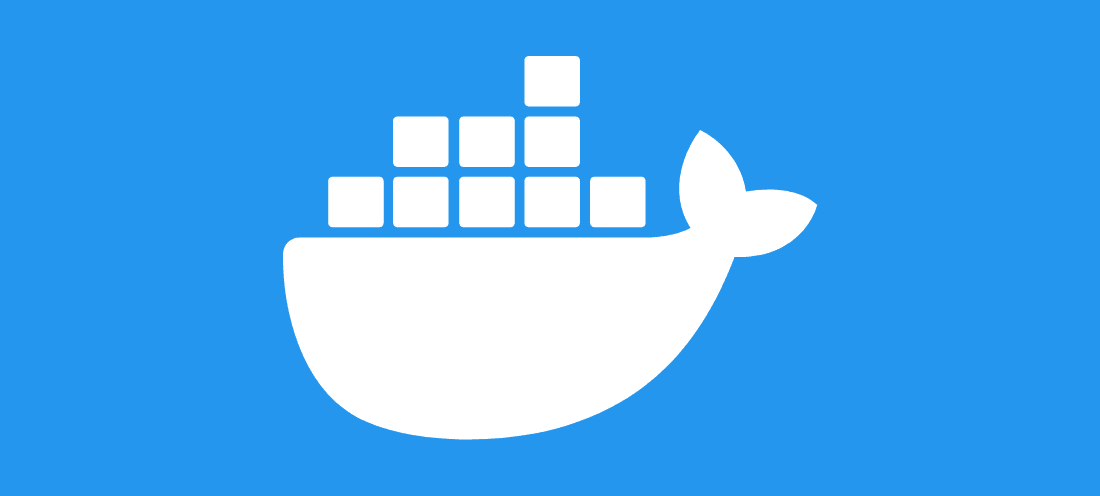
Why Is Docker In Vogue?
September 1, 2021Dinesh kumar
VP Engineering @ RadiansysContainerization has become a broader term with its scope reaching the IT industry now. Out of all the container technologies in the market currently, the name Docker echoes wide among businesses that are reclining on cloud technologies. Docker is highly trending these days as it simplifies the process of software development, passage, and final deployment.
Do you want to optimize your business processes and application management? Are you looking for a system that makes your software delivery convenient and leakproof? Docker can give you all this and much more.
Docker has amassed the trust of over 11 million developers with more than 13 billion container images downloaded so far. (source)
Using docker has helped us greatly with streamlining and compartmentalizing the software delivery process. If you are finding difficulties managing your applications, we are here to help.
Now, let’s explore deeper about docker and how it’s going to prove beneficial to you.
What Is Docker?
Docker is a containerization technology toolkit used for application/software development. Emerging out of the Moby Project, docker aimed at easing the development, testing, and execution processes for applications.
The docker technology presents a container that can store applications with all of their components. These docker containers, when finally packed, act as ready-to-deploy software codes for different platforms.
Docker is a whole system that takes care of containers from creation till final deployment and everything in between. this is done through an API including some general commands and automation. It is, thus, a unified stage from where developers can build, run, test, execute, update, or even cease containers.
Solomon Hykes founded Docker. Its first edition was released in 2014 after which it has attained newer forms with advancing updates.
According to a report by Docker, the technology has been used for containerizing over 3.7 million applications while more than 37 billion containerized software has been downloaded from Docker’s site.
Components Of Docker
As mentioned above, docker is a whole toolkit. Let’s take a quick look at what all does this kit contains.
- Dockerfile: It’s a text instruction file on building a docker image and tool used for running it.
- Docker image: It’s a read-only instruction file on building a container and the components and methods used for running it. Docker image can be executed too.
- Docker run utility: It’s a command used for launching containers.
- Docker hub: It’s a repository for storage, management, and sharing of container images.
- Docker engine: It’s the core component of docker that uses client-server technology for running the containers. A docker daemon, APIs, and command-line interface are primary components of the Docker engine.
- Docker compose: It’s a command-line operation for building and executing multi-container applications on docker through YAML files. It also permits various other functions like rebuilding, status view, etc.
- Docker desktop: It’s the desktop application for docker that contains all the above docker components.
Functioning Of Docker
The container image in docker is an individual, light, and deployable software bundle that contains all app items like code, libraries, settings, tools, and runtime. This image turns into a container when run on a docker engine. The container keeps the app software separately stored, untouched from every external factor. This leads to the smooth functioning of the packed software in any environment it is expanded into.
Popular Applications of Docker
The docker technology can have the following applications:
- Building microservice architectures through containerized code execution
- Helping CI/CD by helping software delivery through environment standardization and error removal on the go
- Facilitating big data processing by data compartmentalization and further execution
- Facilitating Container as a Service by delivering applications with partitioned infrastructure and content
What Is the Community Edition of Docker?
It’s a docker edition or product where you can find all the open-source components related to docker container management. The components include certain terminal commands along with the docker engine. These can be used to manage the docker containers in use. You can look for this tool in the package manager of your docker distributor.
How Docker Made Its Niche in The Container Industry?
Containers have been existing since the 2000s in different forms being used by different companies like Oracle Solaris, Google, Parallels, etc.
Amidst plenty of container precedents, docker occupied a high pedestal by changing the course of application development. The docker technology was the start of safer, portable, and open-source software containers. It did so by open sourcing its Libcontainer, inviting a global community along with partners to develop the technology with significant inputs.
Further, it was in 2015 and 2017 that docker gave away its container image details to global organizations for maturing of the platform. The Open Container Initiative made Runc out of the docker tech that focused on standardization. Docker’s partnership with the Cloud Native Computing Foundation birthed Containerdwhich is a high industry core container runtime for docker currently. It aims at making the container ecosystem more portable, robust, yet simplified.
Why Prefer Docker Over Other Containers?
Undoubtedly, docker proved to be the icing on the cake with its significant contribution to container technology. It topped the container list with the following advantages:
Automatic Container Building
Docker can generate a container by only using the source code of particular applications.
Operation Standardization
Docker containers make it easy to streamline application management. developers can easily pick containers and check them for any modification, issue, and remediation.
Flawlessly Portable
Docker facilitates relatively higher portability to containers. They can be deployed over different platforms including desktops, cloud, data centers, etc. without any modification.
Faster Software Shipping
Using docker helps to roll out software faster and more frequently. The containers are easy to ship and can be shipped as many times as needed.
Environment Minimalism
Using docker containers help developers keeping the environment clean. This helps with effortless app deployment and management, most of all.
Easy Updation
The docker containers allow a single process to run at one time. This makes the app functioning possible alongside the updating or fixing of any component.
Higher Scaling
Along with simplifying software building, docker containers also facilitate improved scaling. As they are easy to manage, developers can test a suite of containers to know if they are performing up to mark.
Version Tracking
Docker maintains a track record of the container image versions. This allows developers to know container origins, use previous versions, make changes, and so on.
Container Templating
Interestingly, docker allows the use of containers as templates or base images for creating new containers.
Container Library
This is probably the best advantage of docker. The vast docker community is essentially a library of over a thousand containers fed by docker users. It is an open library that can be accessed by any docker user for any purpose.
Great For Beginners
Docker can prove the best tool for new developers as it allows space for multiple functions. The community edition of docker can be a great kickstart to understand using containers. Also, the docker engine provides an effortless testing mechanism.
Save Cost
With all the above advantages, docker ultimately helps companies and users save on power and hardware. It also helps them boost process optimization by running more codes on servers and ultimately, save even more.
What Is the Best Contribution of Docker to Software Companies?
Docker is becoming the top favourite of software companies. Needless to say, it is because of its enormous advantages for the developers. It is also mentioned worthy how docker complements the Agile methodology and DevOps practices.
One of the most popular DevOps methodologies is the CI/CD or Continuous Integration/Continuous Deployment. It entails easy integration of codes into sharable libraries at each successive stage followed by the quick and easy release of the code wherever needed. Now, this whole practice resonates closely with Docker’s application portability.
Here is how dockers facilitate CI and CD-
- For CI, Docker facilitates compartmentalization of code integration by providing containers. Developers need to just build the application and store it in the containers. They can also update the apps inside these containers on the go.
- For CD, the docker containers can be rolled out by developers in any environment and release the application finally. Docker also facilitates smooth deployment on cloud platforms. Developers can easily check for modification implementation white testing.
Docker provides multiple other benefits for CI/CD methods like:
- Setting up live server imitation environments locally for testing and deployment checks
- Utilizing various OS, settings, and software on one host for running plenty of environments
- Establishing many servers for project testing
- Permitting user entry to projects for modification on any localhost platform
The docker containerization also complements the project division practice of Agile methodology. It helps the agile teams to maintain workflow more efficiently and deliver while building.
Report have pointed out towards the sharp increase in the percentage of IT companies adopting the Docker technology. An average boost of 30% has been observed along with around 21% hosts running on Docker, in 2018.
We can say with experience, that docker is the best platform to use while following Agile project management. Docker also complements the CI/CD pipeline workflow greatly. We have delivered numerous projects using docker and the results have always been amusing. If you want to know more about the benefits of docker adoption, trust us for expert advice.
Docker has almost become synonymous with Container- this speaks volumes about the popularity of this technology.
Today, docker has partnerships with many industry giants like Microsoft, Amazon Web Services, Red Hat, Oracle, etc. that provide plenty of benefits to developers using docker. Even the emerging companies that provide micro services like Netflix, Uber, etc. are utilizing the Docker technology.One can expect an ever brighter future for container technology with projects like Kubernetes gaining traction.
Such speedy growth is very much telling of the crucial role Docker will be playing in success of new businesses. Our developers highly prefer Docker as it eases down the management of working deliverables. If you want to take a closer look at the advantages of Docker, let us help you with that.
Thanks for reading!
